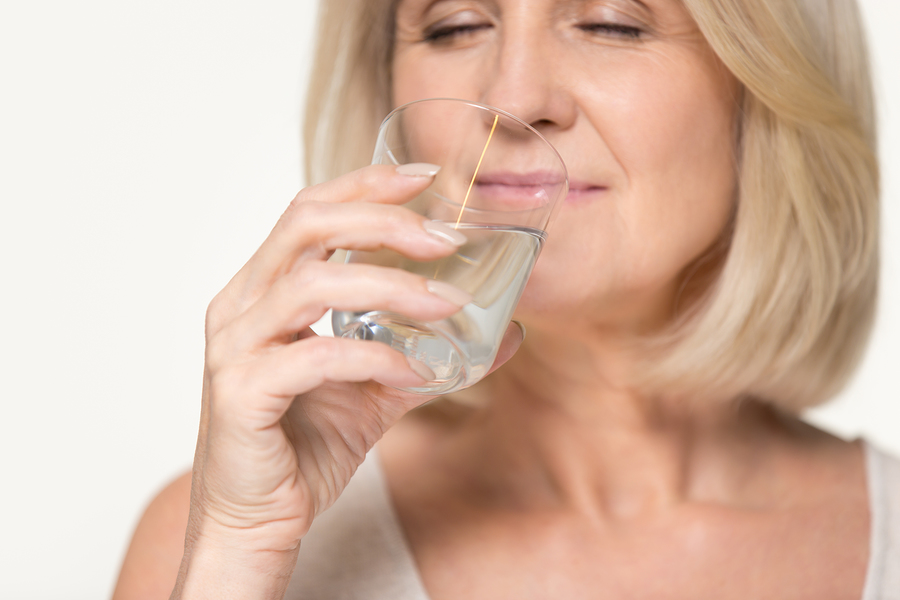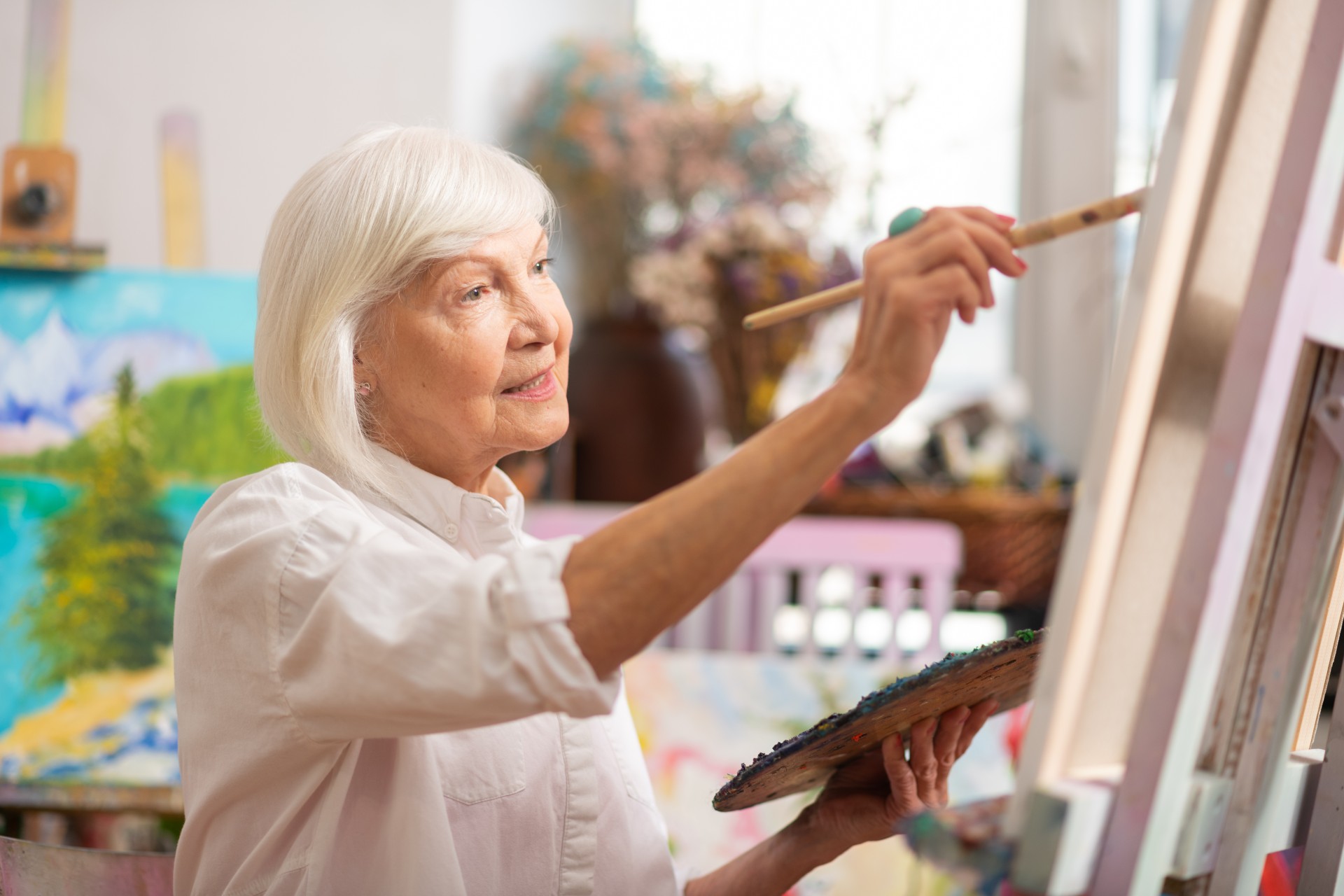The Importance of Hydration for Seniors
October 26, 2022
Contributed by Carole Clausen, Personal Trainer, Fellowship Senior Living
Hydration is vital to staying healthy. For older adults, there are a number of factors that affect the ability to maintain adequate fluid intake. Seniors may have a diminished sense of thirst, urinary incontinence or take medications that impact fluids stored in the body. For that reason, it is very important for older adults to stay hydrated regularly.
6 Health Benefits of Hydration
- Proper hydration supports an intricate system of keeping the fluids and electrolytes balanced in our bodies. Water is essential for maintaining this fluid balance, as it helps our bodies in many ways, such as:
- 1. Controlling body temperature
- 2. Assisting the body in insulating itself against cold
- 3. Delivering nutrients and medications to cells and carrying waste away
- 4. Keeping our mouth, nose, eyes and skin moist
- 5. Ensuring proper volume of blood
- 6. Keeping the urinary tract flushed out, thus reducing the risk of urinary tract infections
Symptoms of Dehydration
Luckily, you can catch dehydration early. But it’s necessary that you listen to your body in order to identify the following symptoms:
- The first sign of dehydration is usually thirst, which generally occurs when there is a 1-2% loss of body water
- At a 2-5% loss, symptoms can include dry mouth, flushed skin, headache, fatigue and impaired physical performance
- A 6% loss may cause increases in body temperature, heart rate and breathing
- With an 8% loss, one may experience dizziness, confusion, increased weakness and labored breathing with daily activities
- A loss of 10% body water may cause muscle spasms, swollen tongue and delirium
- When the loss drops to 11%, symptoms include poor circulation and failing kidney function
Hydration Tips for Seniors
The recommended daily fluid intake to keep your body hydrated is 48 to 64 ounces or six to eight 8-ounce glasses of water each day. This may sound like a lot, but your daily hydration requirement need not be filled entirely from the tap.
Foods and beverages that contribute to your daily intake levels include milk, soup, fruit and vegetable juices, gelatin, apples, watermelon, decaffeinated soft drinks, tea and even cooked broccoli. Caffeinated drinks and alcohol do not contribute to your daily intake. In fact, they actually act as diuretics — contributing to water loss — and should be consumed in moderation.
Don’t wait for thirst and other symptoms of dehydration to take action. Actively prevent fluid loss by starting your morning with water or juice and carrying a bottle of water wherever you go. Drink water before, during and after physical activity and take water breaks throughout the day. Besides drinking water, get at least five servings of fruits and vegetables daily. Following these hydration tips for seniors will help keep you healthy and moving, especially during extreme warm and cold weather months.
Senior Health and Wellness at Fellowship Senior Living
At Fellowship Village in Basking Ridge, New Jersey, wellness is key in our approach to helping seniors thrive. Our BRAVO Wellness program offers you the opportunity to meet with a personal wellness coach who will assist you in creating a customized plan tailored to your lifestyle.
We also offer a fully staffed Medical Center featuring physicians, nurse practitioners and specialists right on campus to take care of your healthcare needs. For more information, or to schedule a personal tour of our community, contact us today or give us a call at 908-580-3800.



